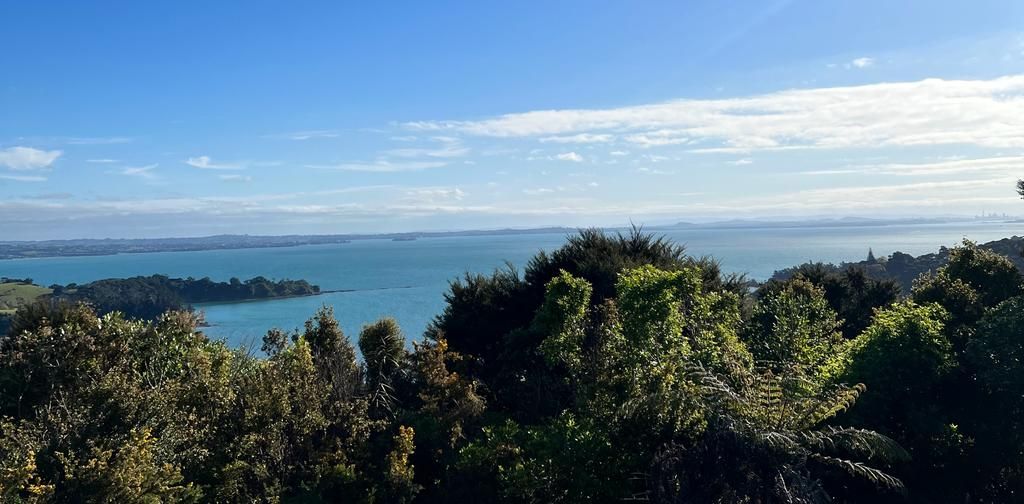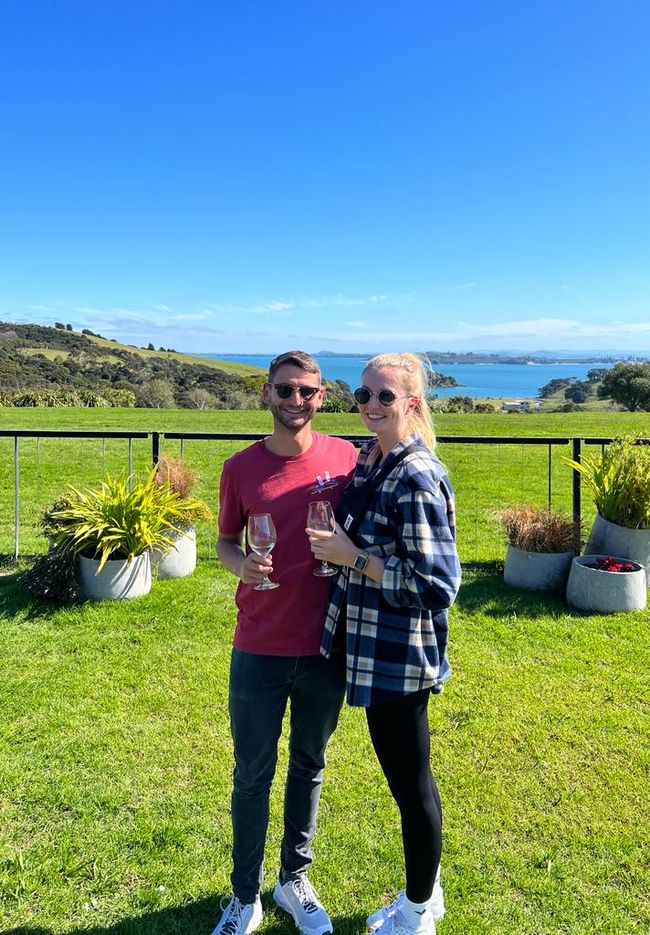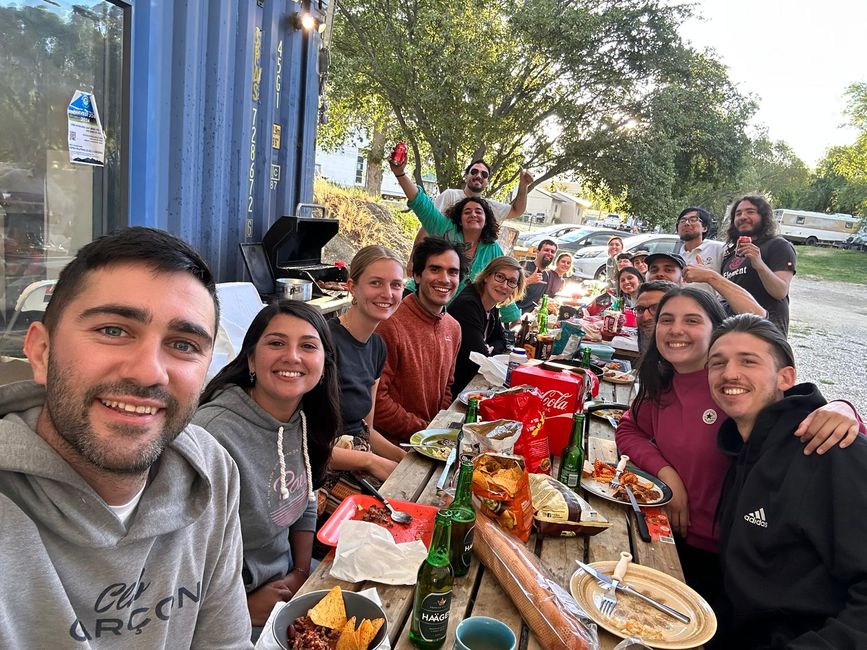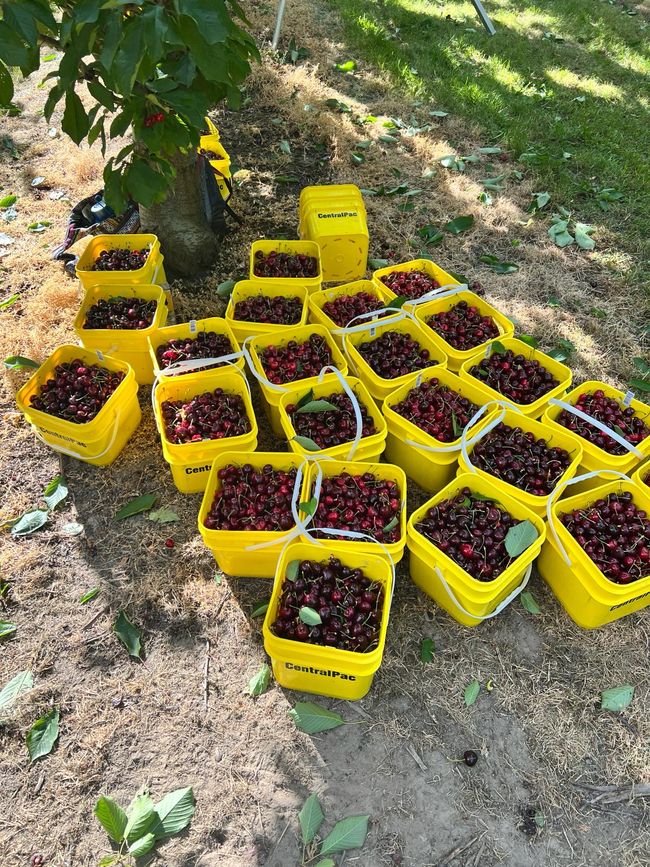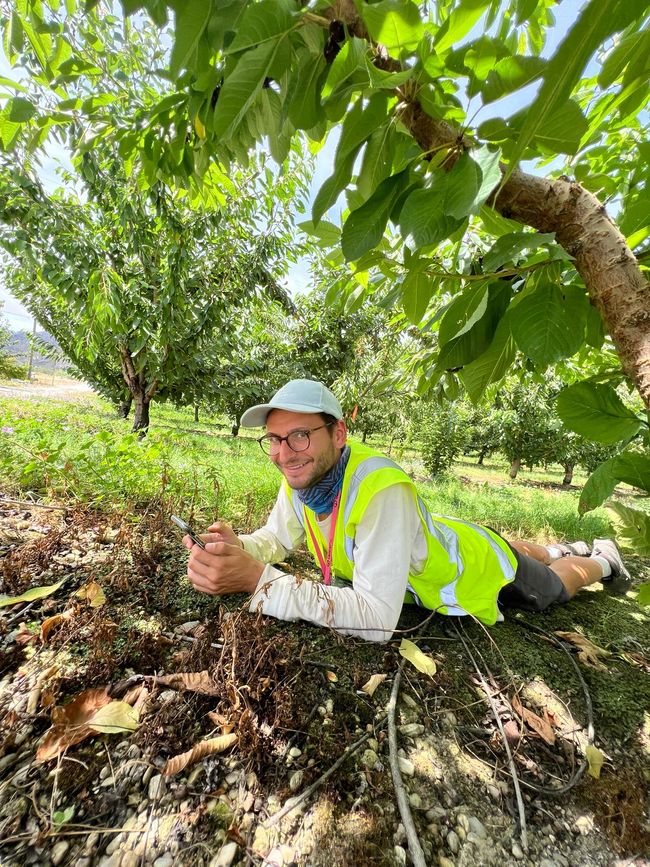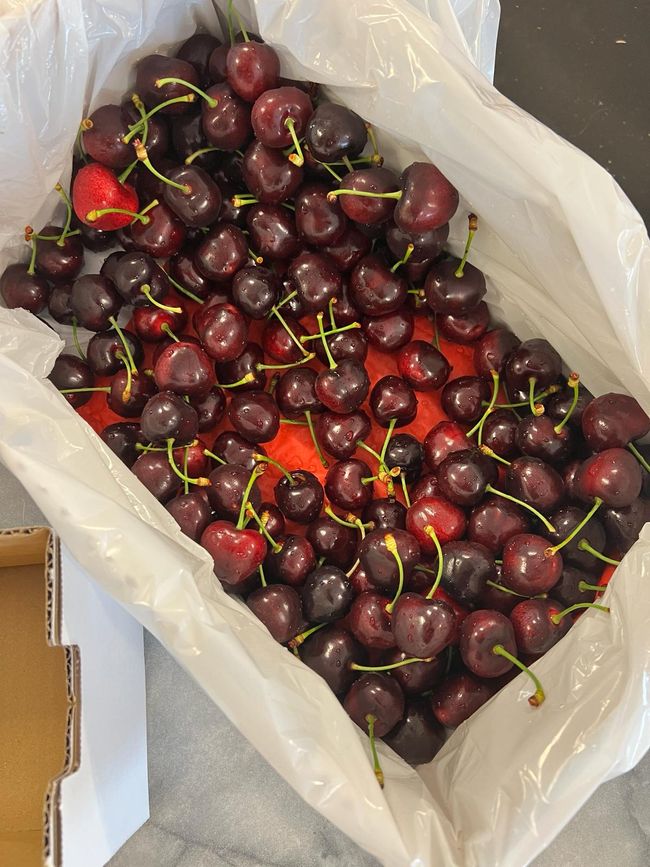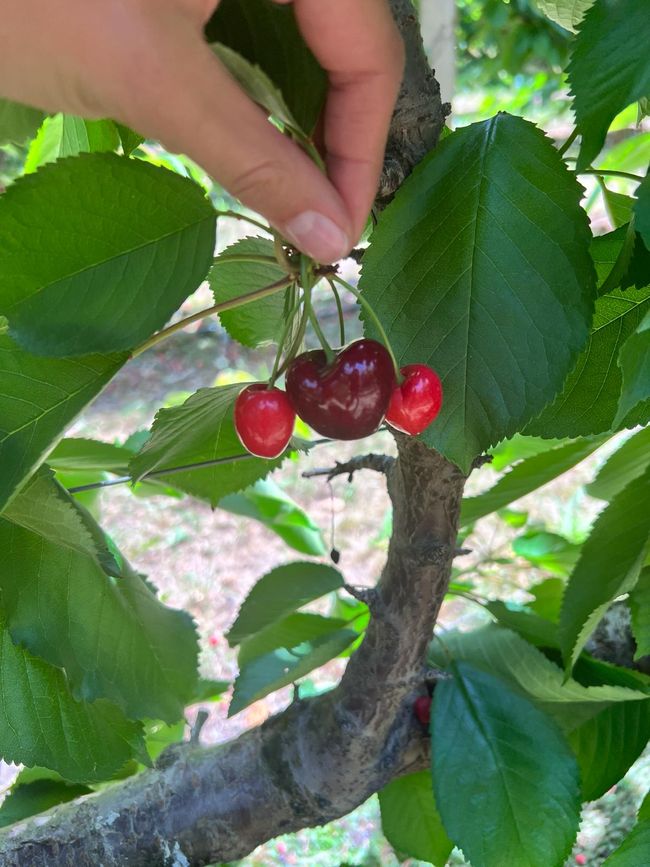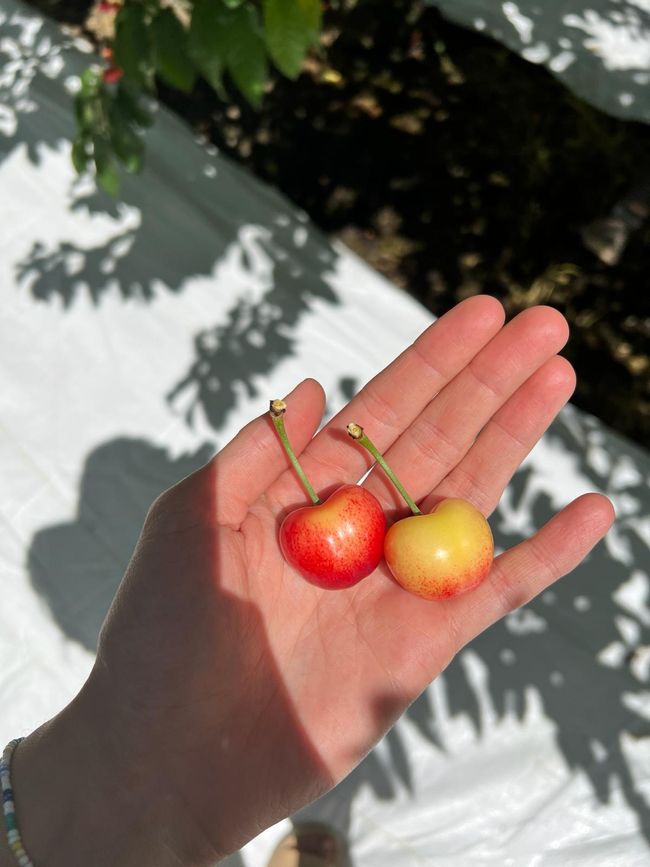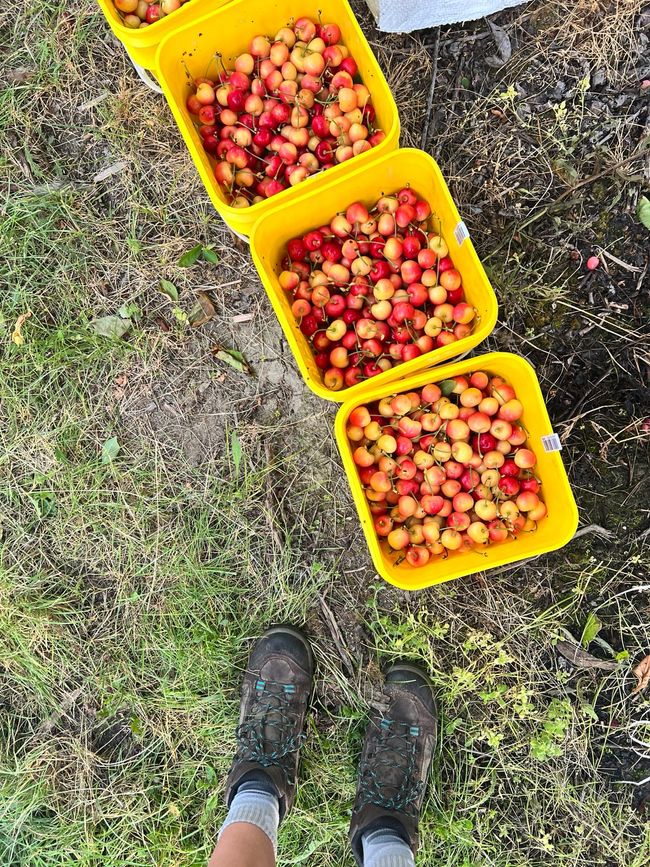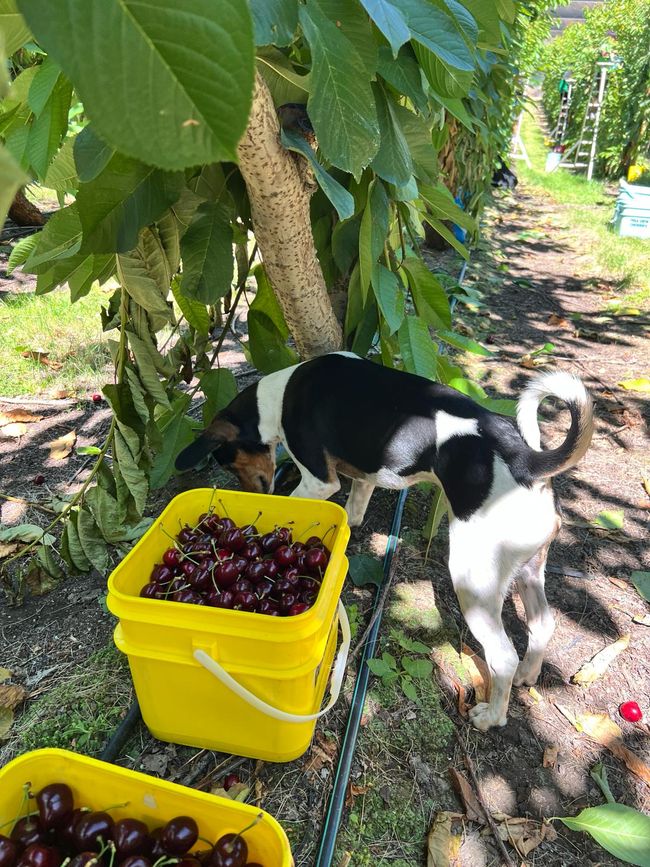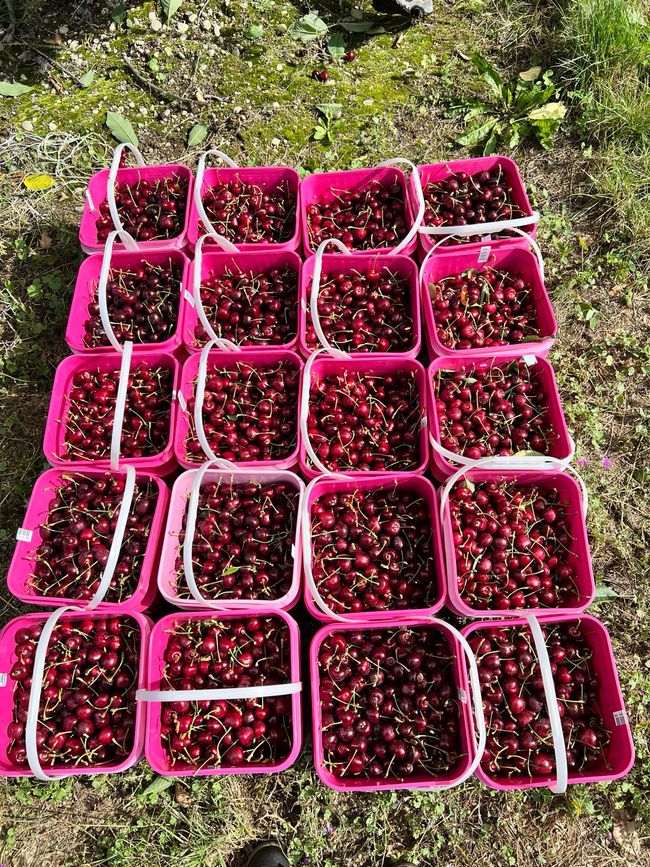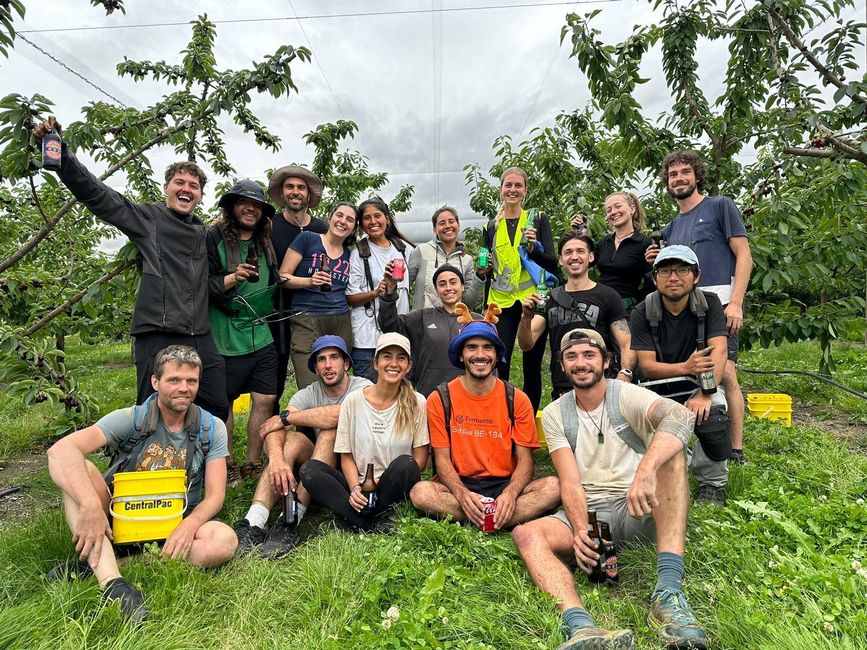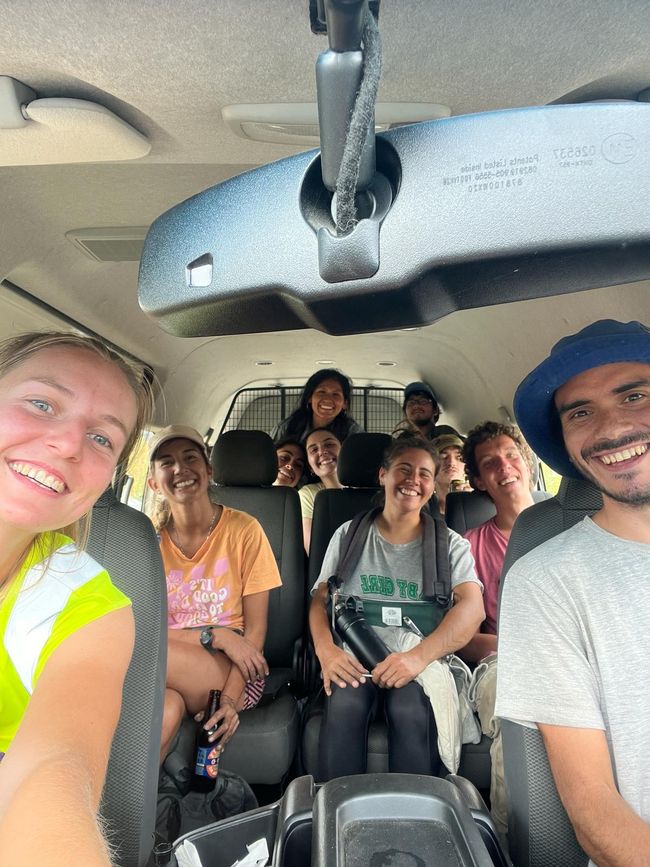Cherry Saison 23/24
Argitaratu: 15.02.2024
Harpidetu Buletinera
When we received the request a few months ago to work as a team leader/supervisor in New Zealand for the 23/24 cherry season, we thought it would all be pretty cool. After a few weeks, however, it turned out to be very demanding and stressful. But let's start from the beginning:
After working in viticulture for 3 1/2 weeks, we had exactly one week before the cherry season started. We traveled the east coast to the southernmost point (Invercargill/Bluff) and then drove back to Cromwell.
The cherry season started on December 5th, 2023 and we were super excited and curious about what was to come. We were assigned to a team and then we went to the cherry orchards. Our teams consisted of 10-18 pickers, this changed over the course of the season as Hildi had to quit 5 pickers because they were too slow and new pickers only joined the team towards the end. This task of terminating employees was not our responsibility (we thought), but it turned out that we were supposed to do it. Well, let's get to a daily routine:
At 5 a.m. the alarm went off, we quickly got into our work clothes, brushed our teeth, had breakfast and then we got into the vans that took us to the orchard. We started work at 6:30 am. Before all the pickers were let loose on the cherries, we were given a so-called "block walk", we looked at the cherries that were to be picked that day (color, size, how many are damaged and how many rows there are). And then it started, the pickers each took a ladder and a 5kg bucket and started picking. We randomly checked the pickers' buckets throughout the day. Here it was checked whether the correct size, color and no damaged cherries were picked. We also had to check that all the good cherries had been picked from the tree and that the pickers were working "safely", i.e. placing/using the ladder correctly. On a “normal” working day (9 hours) you averaged around 20 km walking around the orchard. At the end of the day we had to document our team's working hours and occasionally discuss problems etc. with our teams.
At the beginning of the season the days were short and fewer working days per week (30-40 hours per week). The high season began around Christmas and lasted until the end of January, meaning for us at least 50 hours per week and a maximum of 70 hours per week. Days off were then only rainy days and/or public holidays and even on rainy days people often still worked. As most people can imagine, the last few weeks in particular have been very stressful.
The positive thing about the whole work experience was all the great people we met. We both got along very well with our teams and often had a beer with one or two pickers after work. Another positive thing was that we had a little more responsibility than in the vineyard, so the work wasn't as monotonous and the salary was of course better. And the last positive thing was of course the money we earned during that time. Thanks to the good pay and the long hours of work, a lot came together.
Now we're really looking forward to traveling again!
Harpidetu Buletinera
Erantzun

Bidaien txostenak Zelanda Berria
